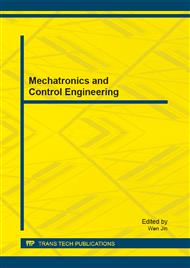p.389
p.396
p.401
p.409
p.419
p.425
p.430
p.436
p.440
The Experimental Results Analysis of Shortwave Channel Reciprocity
Abstract:
The shortwave channel reciprocity is important for shortwave channel simulation and shortwave real-time frequency-selection. In order to study the reciprocity of shortwave channel. This paper analyzed experimental results on shortwave reciprocity between Wuhan and Wanning in March 2009, the experimental results obtained by the WIOBSS. The experimental results of the contrary paths shortwave propagation displays that the mean difference value of MUF is small, and the scattering function and Doppler shift are similarsim. Removing the inaccuracy of measurement, we can get that the two propagation paths basically satisfy the reciprocity.
Info:
Periodical:
Pages:
419-424
DOI:
Citation:
Online since:
July 2013
Authors:
Keywords:
Price:
Сopyright:
© 2013 Trans Tech Publications Ltd. All Rights Reserved
Share:
Citation:


